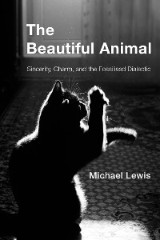Details

The Beautiful Animal
Sincerity, Charm, and the Fossilised Dialectic|
CHF 36.00 |
|
| Verlag: | Rowman & Littlefield International |
| Format: | EPUB |
| Veröffentl.: | 20.06.2018 |
| ISBN/EAN: | 9781786607560 |
| Sprache: | englisch |
| Anzahl Seiten: | 226 |
DRM-geschütztes eBook, Sie benötigen z.B. Adobe Digital Editions und eine Adobe ID zum Lesen.
Beschreibungen
<span><span>Can philosophy conceive of a perfect animal? Can it think of the animal as anything other than an imperfect human? The book attempts to rethink the Hegelian dialectic so as to render it capable of assigning a proper place to the animal, and in particular the beautiful animal, and to rework the philosophy of nature so as to encompass the fossil. The fossil itself teaches philosophy and in particular the dialectic how it must modify itself in order to encompass the beautiful animal, in the form of what we term the </span><span>fossilised dialectic</span><span>, resistant to the spiritualisation which will always leave the animal behind.</span></span>
<br>
<span><span>If philosophy can admit the animal in this way, we might then ask what philosophy can learn from this animal that will have taken up residence in its home? What does a specifically </span><span>domestic </span><span>animal teach us? At the very least, it shows us that the function we give to the furnishings of the house is not the only one and perhaps therefore that there </span><span>is </span><span>no single unique function. In this way, animals teach us the most philosophical lesson there is: to see the world as it is in itself.</span></span>
<br>
<span><span>If philosophy can admit the animal in this way, we might then ask what philosophy can learn from this animal that will have taken up residence in its home? What does a specifically </span><span>domestic </span><span>animal teach us? At the very least, it shows us that the function we give to the furnishings of the house is not the only one and perhaps therefore that there </span><span>is </span><span>no single unique function. In this way, animals teach us the most philosophical lesson there is: to see the world as it is in itself.</span></span>
<span><span>Can philosophy conceive of a perfect animal? Can it think of the animal as anything other than an imperfect human? This books using the Hegelian dialect to rework the philosophy of nature in order to assign a proper place to the animal. </span></span>
<span><span>Introduction / Chapter I The Animal’s Sincerity: Wittgenstein, Levinas, Lacan / Chapter II — Kant and the Animal’s Charm / Chapter III — Hegel and Nature / Chapter IV — Beauty in Nature — Hegel’s Aesthetics / Chapter V — Fossils and the Fossilisation of the Dialectic</span></span>
<span><span>Michael Lewis is the author of </span><span>Heidegger and the Place of Ethics </span><span>(Bloomsbury),</span><span> Heidegger beyond Deconstruction: On Nature </span><span>(Bloomsbury),</span><span> Derrida and Lacan: Another Writing </span><span>(Edinburgh University Press)</span><span>, </span><span>and (with Tanja Staehler), </span><span>Phenomenology: An Introduction </span><span>(Bloomsbury)</span><span>, </span><span>along with articles on Agamben, Bataille, Derrida, Esposito, Lacan, Stiegler, and Žižek among others. Educated in Philosophy at the Universities of Warwick and Essex, he has taught philosophy, film, psychoanalysis, and philosophical anthropology at the University of Sussex (2007–9, 2011), University of Warwick (2010), and the University of the West of England (2011–15). He currently teaches philosophy at the University of Newcastle Upon Tyne.</span></span>

















